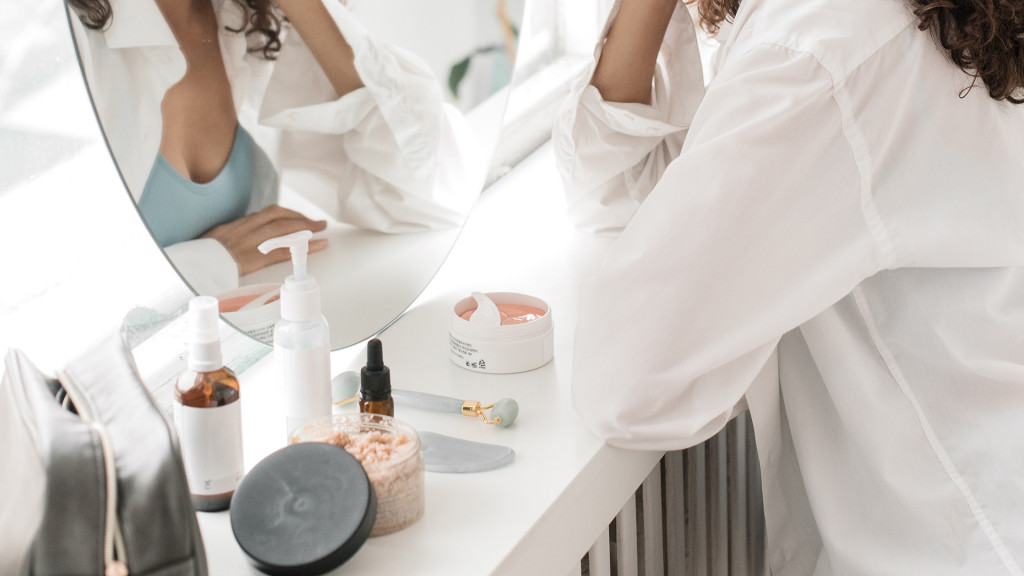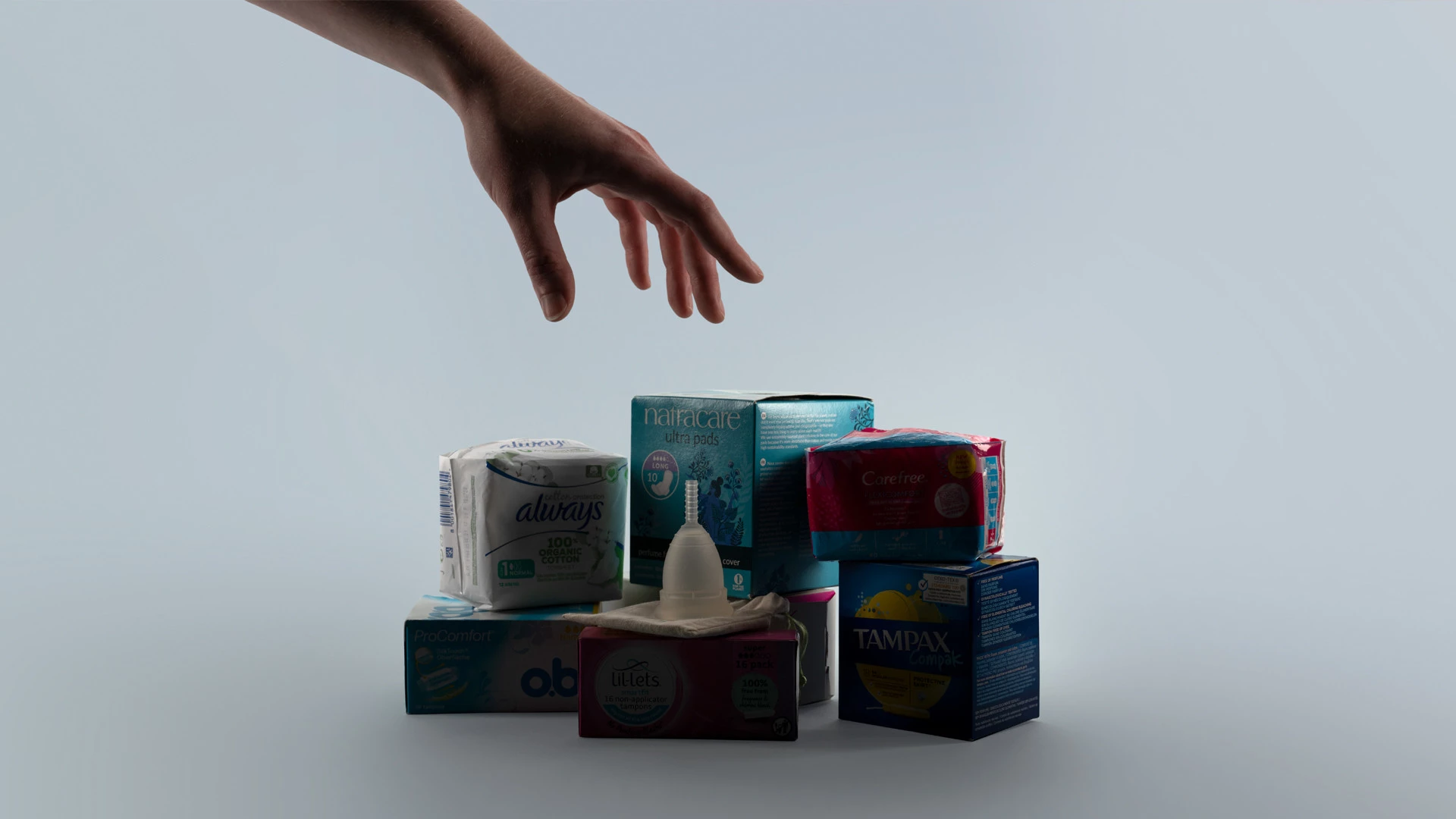How often do we think about our period products?
We think about them most frequently when it’s that time of the month and we have a recurring fear or panic about a leak before checking whether all is well. Despite these frequent moments of anxiety, we make so few changes to our routine.
It's not like that with shampoo or moisturiser. We place such high expectations and demand on these everyday basics and swap brands frequently. Every time we change our hairstyle we review our hair care products. Even our skincare regime changes with the seasons. But we rarely switch our period care products, which is even more surprising when you consider the significant changes our body undergoes over a lifetime. The move from education to work. Having a baby. Raising a family. Dietary complications and illness. Menopause. These events or conditions can impact our body and our cycle but these changes are rarely reflected in the choice of what to use on your period.

Curiously, it's both external and global forces that are making us consider the period products we use. Working from home is the perfect environment to try out the period cup. And the climate crisis continues to encourage us to examine our lifestyle choices and minimise what goes into landfill. Research from Boston University Medical Campus and Harvard School of Public Health that links irregular periods with poor air quality during teenage years was a real eye-opener for us!
Online retailers have responded to increased environmental awareness by showcasing and delivering a growing range of sustainable period products from established brands and newcomers. Everything from organic cotton tampons and reusable tampon applicators to plastic-free pads and menstrual underwear are all so easy to source online. We can now set up subscriptions for quick access to different sustainable period products and brands. Having everything to hand ensures we never have to use light absorbency products on heavy days or even worse, for ourselves and the environment, high absorbency products on light days. Online has been such a game changer.
“While this appears to illustrate incredible brand and product loyalty, 91%* want to try new menstrual products...
”
Online shopping gives us quicker access to more period care products than ever before - but it’s quite a different picture for the 96%* who still purchase period products at the supermarket or high-street pharmacy, where shelf space is at a premium and retailers are hesitant to introduce new products. This helps explain why 68%* still buy the same brand month in, month out and 77%* still buy the same products they used when they first got their period and their sister or mother guided the way. While this appears to illustrate incredible brand and product loyalty, 91%* want to try new menstrual products, suggesting there is an appetite for change from those who like to shop in store.
How will that change manifest itself? Irrespective of how and where we shop, we know that product reliability and comfort* are the barometers that people who menstruate use when comparing products and deciding what to use on their period. We can all see that an organic cotton tampon is a great idea but if it’s less reliable in any way, it needs to be highlighted on the product brochure or packaging, alongside its environmental benefits, to enable us to make an informed decision. And if emptying a period cup presents hygiene concerns as well as challenges in a public toilet, that needs to be flagged online and in print alongside its environmental credentials. Nobody’s quality of life or air quality will benefit by sending unused or under-used products to landfill. Transparent product labelling on reliability and comfort will ensure the right product gets into the right set of hands.
It's such an exciting time for the sector and we want to be part of the change; highlighting the advances, with industry experts and medical practitioners that are leading the way to better period care for all, including people with reduced mobility and menstrual conditions such as endometriosis and fibroids. We want to see menstrual products that are accessible for everyone. If you’d like to know more about the changing world of period products, subscribe now.
